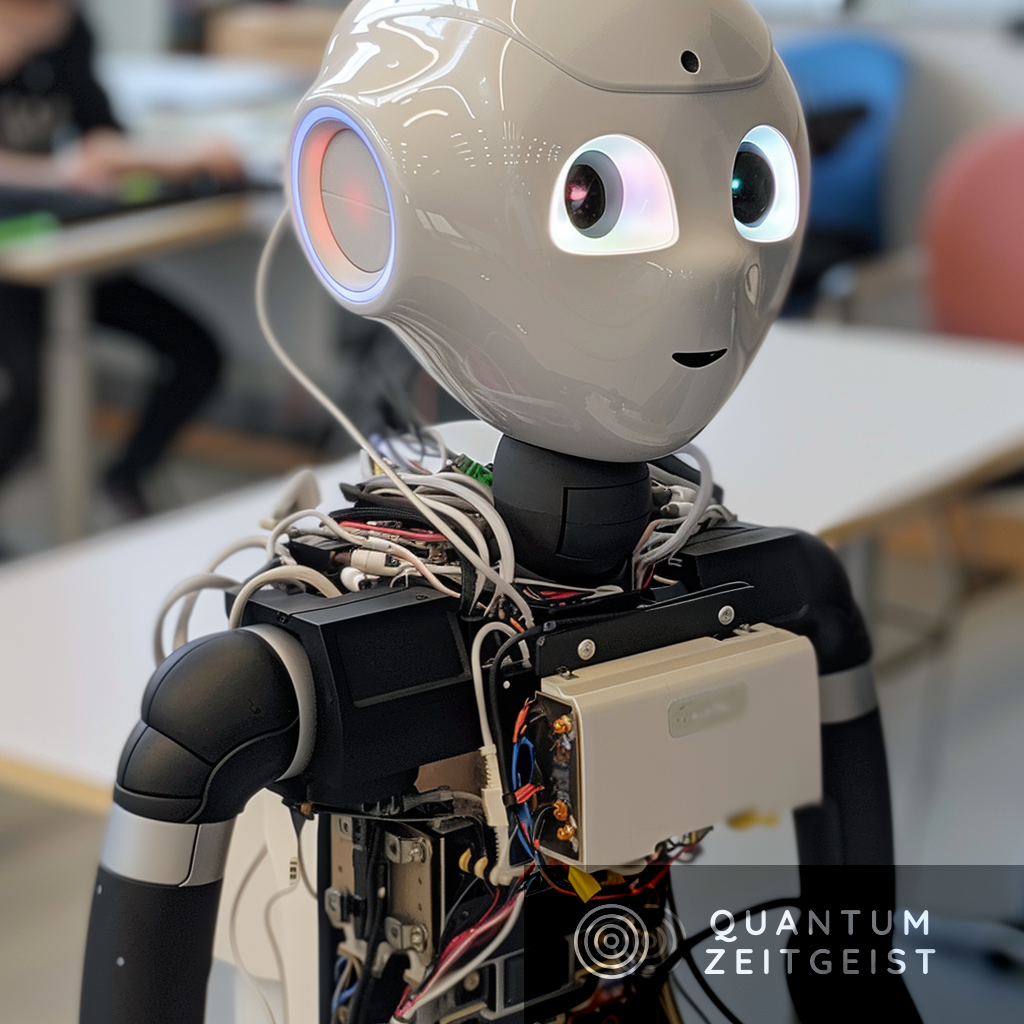Artificial Intelligence (AI) is becoming increasingly integrated into our daily lives, making AI education a necessity. However, current AI curricula are not accessible or engaging enough for all students. To address this, researchers from the University of Southern California and Cornell University have developed an open-source learning module that allows students to build their own robot companion. This module provides hands-on experience in various aspects of AI, including robotics, machine learning, and AI ethics. The module has been tested and found to be effective, easy-to-follow, and engaging, increasing student interest in AI/ML and robotics.
What is the Importance of AI Education in Today’s Society?
Artificial Intelligence (AI) is becoming increasingly prevalent in our society and global economy. From entertainment to healthcare and education, AI-powered technologies are being integrated into our daily lives. Large-language models (LLMs) such as Chat GPT OpenAI have shown tremendous potential in improving work efficiency in various industries, from software engineering to script editing and generation. Self-driving companies like Waymo and Cruise have deployed fleets of driverless taxis, which could change the way people commute every day.
However, with these promising developments come potential risks. Advances in AI may further broaden the gap in inequality and leave behind users without sufficient AI literacy. For example, users of LLM-based services may unintentionally leak out their proprietary or personal data if they do not have a basic understanding of how LLMs use and learn from their data. Without a sufficient understanding of AI ethics and fairness, users may blindly trust products such as AI-based resume screening services, resulting in unintended discrimination against marginalized groups. AI services such as Tesla’s full self-driving feature may be misunderstood and used incorrectly with potentially life-threatening consequences.
Therefore, AI education and literacy have become necessary components in college and K-12 education to prepare students for an AI-powered society. However, current AI curricula have not yet been made accessible and engaging enough for students and schools from all socioeconomic backgrounds with different educational goals.
How Can We Make AI Education More Accessible and Engaging?
To provide more accessible AI education for all, the learning modules need to be affordable for students from all socioeconomic backgrounds and customizable for learners with different learning goals. Many existing robot platforms have been validated as successful resources for AI/ML and robotics education. Platforms such as the NAO robot developed by Aldebaran or the Poppy robot have already been adapted to both K-12 and college classrooms to support better STEM learning.
However, the cost of these robot platforms is not yet affordable for schools with limited resources. Alternatively, there are many commercial toy-like educational robot kits such as LEGO Boost or Loona available on the market. These kits are relatively inexpensive and are usually paired with a graphical programming user interface (UI). They have been shown to be a great affordable resource for learning introductory AI topics. However, their one-size-fits-all, closed-source design results in fixed learning goals and hard-to-customize robot hardware and software.
What is the Proposed Solution for More Accessible AI Education?
In response to these challenges, a team of researchers from the University of Southern California and Cornell University developed an open-source learning module for college and high school students, which allows students to build their own robot companion from the ground up. This open platform can be used to provide hands-on experience and introductory knowledge about various aspects of AI, including robotics, machine learning (ML), software engineering, and mechanical engineering.
Because of the social and personal nature of a socially assistive robot companion, this module also puts a special emphasis on human-centered AI, enabling students to develop a better understanding of human-AI interaction and AI ethics through hands-on learning activities. With open-source documentation, assembling manuals, and affordable materials, students from different socioeconomic backgrounds can personalize their learning experience based on their individual educational goals.
How Effective is this Open-Source Learning Module?
To evaluate the student-perceived quality of this AI module, the researchers conducted a usability testing workshop with 15 college students recruited from a minority-serving institution. The results indicate that the AI module is effective, easy-to-follow, and engaging, and it increases student interest in studying AI/ML and robotics in the future.
The researchers hope that this work will contribute toward accessible and engaging AI education in human-AI interaction for college and high school students. By providing an affordable, open-source, and customizable learning module, they aim to make AI education more accessible and engaging for students from all socioeconomic backgrounds and with different learning goals.
What is the Future of AI Education?
The future of AI education lies in making it more accessible and engaging for all students, regardless of their socioeconomic background or educational goals. This involves creating affordable, open-source, and customizable learning modules that provide hands-on experience and introductory knowledge about various aspects of AI.
Furthermore, as AI becomes more integrated into our daily lives, it is crucial to put a special emphasis on human-centered AI and AI ethics in education. This will enable students to develop a better understanding of human-AI interaction and the ethical implications of AI, preparing them for an AI-powered society. The open-source learning module developed by the researchers from the University of Southern California and Cornell University is a step in the right direction towards achieving this goal.
Publication details: “Build Your Own Robot Friend: An Open-Source Learning Module for Accessible and Engaging AI Education”
Publication Date: 2024-03-24
Authors: Zhonghao Shi, Amy E. O’Connell, Zongjian Li, Siqi Liu, et al.
Source: Proceedings of the … AAAI Conference on Artificial Intelligence
DOI: https://doi.org/10.1609/aaai.v38i21.30359

